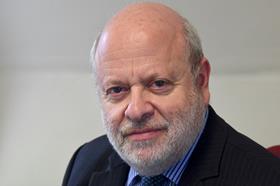International legal organisations churn out guidelines and reports on a monthly basis. I sometimes wonder whether anyone outside those organisations knows or cares, since the world goes on regardless.

The Law Society, or the UK as a country, is sometimes a member of the organisation concerned, and yet no - or at any rate little - echo is received back home about the conclusions of an organisation of which we are a member.
That is a shame. I am a fan of these reports, maybe the only fan for miles around, because the conclusions usually contain internationally agreed principles which can be used in domestic settings to advance better policies. The conclusions are especially important in countries where the rule of law is a challenge, such as those in former Soviet countries outside the EU (or indeed within the EU). But even in countries like our own, where the rule of law is in more or less settled, the principles can be used to persuade governments to improve current practices.
Here is a prime example. The European Commission for the Efficiency of Justice (CEPEJ) is a committee of the Council of Europe, of which the UK is a member. We are represented on it by a civil servant, the Business Strategy Manager of HM Courts and Tribunals Service (HMCTS), of whom I at any rate have never heard. We even had a president of CEPEJ from 2011-2014, who was another civil servant not generally publicly known or accountable to the electorate.
And yet CEPEJ does important work. As its most recent example, it has just published ‘Guidelines on videoconferencing in judicial proceedings’, a topic which is contentious domestically.
Our government, indeed HMCTS, has recently ended a consultation on the use of remote hearings during the pandemic. At the time, the Law Society said that feedback from members suggested that many procedural hearings – those involving judges and advocates only - could be dealt with perfectly well remotely, and there was no problem with these remaining a permanent feature of the justice system. However, hearings involving vulnerable parties or witnesses, live evidence, or measures of significant controversy, would more likely be best served by an in-person hearing.
In the CEPEJ guidelines, certain fundamental principles for remote hearings are declared at the outset.
First, all the guarantees for a fair trial under the European Convention of Human Rights must be guaranteed. Along with the usual elements such as fairness, access to materials and equality of arms, data security and risk management are included.
Second, there should be a legal framework that provides a clear basis for allowing courts to hold remote hearings in judicial proceedings.
Third, it is for the court to decide, within that legal framework, whether a certain hearing should be held remotely, with the aim of ensuring overall fairness in the proceedings.
Fourth, the court should safeguard the right of a party to be effectively assisted by a lawyer in all judicial proceedings, including confidentiality of their communication.
The latter is probably the most important for us, particularly in the light of stories that solicitors have to make private ad hoc arrangements to communicate with their clients during a remote hearing to ensure some privacy. There is a section in the guidelines devoted to just this question, communication between lawyers and clients in criminal cases, as follows:
- defendants should be able to confer with their legal representatives and exchange confidential instructions without surveillance; the presence of other persons sharing the same room as the defendant during such exchanges should be excluded
- defendants should be able to communicate with their legal representative over a secured and confidential system, different from the video link provided for the remote hearing
- specific arrangements should be made to ensure that the interpretation of communication between defendants and legal representatives does not undermine its confidentiality
Beyond the Council of Europe, there are reports published by organisations of which we are not a member which might also be useful. The EU published its annual justice scoreboard a few days ago. I know that we are no longer members and so don’t care how EU countries compare to each other in terms of the rule of law.
But there is a new section on the independence of EU bars and lawyers, where the eight criteria for independence are useful for all of us, members or not. We satisfy most of the criteria fully, such as whether there are appeals against disciplinary proceedings and our guarantees for confidentiality. But I wonder how well we would do on the independence of our regulators from the government? Interestingly, France came bottom of the list, below countries which are traditionally considered more worrisome like Hungary and Poland.
So I am happy if my inbox fills up with guidelines from international legal organisations. They might help us here.
Jonathan Goldsmith is Law Society Council member for EU matters and a former secretary general of the Council of Bars and Law Societies of Europe. All views expressed are personal and are not made in his capacity as a Law Society Council member, nor on behalf of the Law Society
































No comments yet